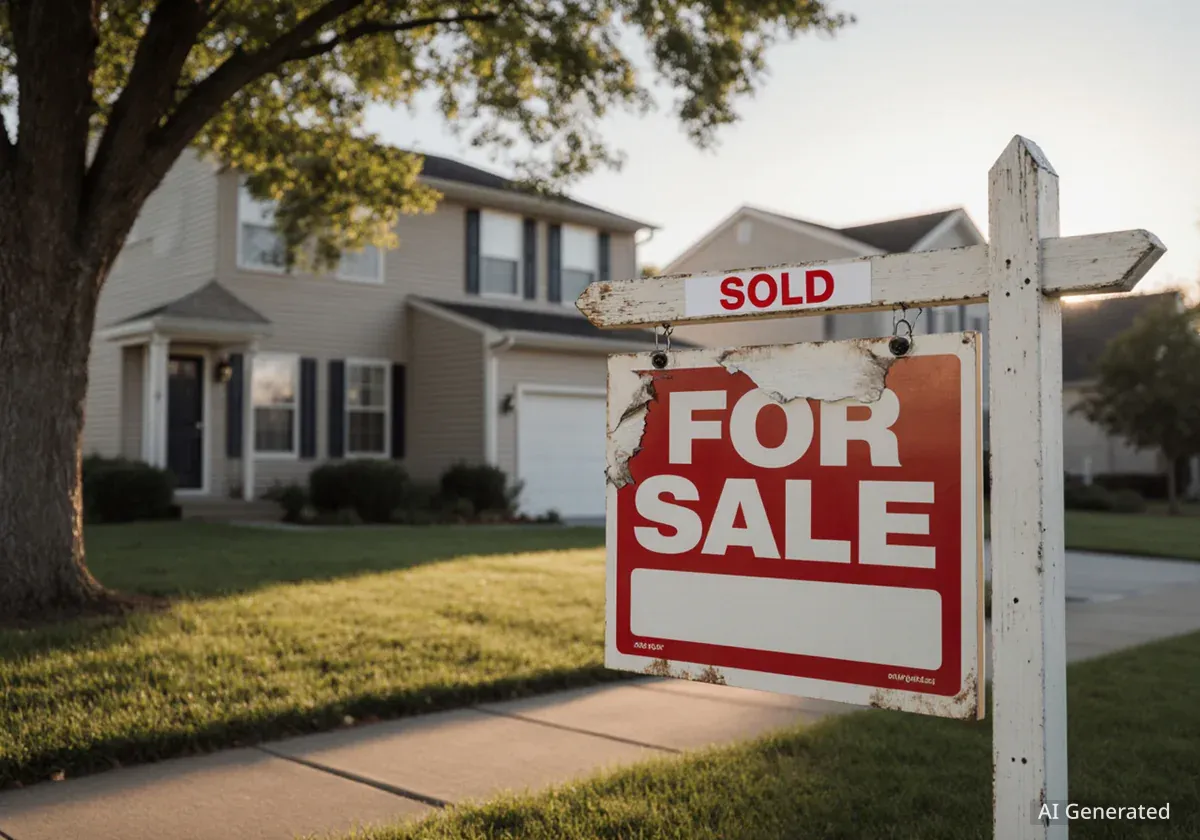Amid high home prices and rising mortgage rates, many younger Americans are finding the dream of homeownership out of reach. However, one real estate expert suggests that for many, renting may not only be more affordable but also a smarter financial decision in the current economic climate.
Amir Korangy, founder of the real estate news publication The Real Deal, argues that the long-held belief that everyone should own a home is outdated. He points to the significant financial and lifestyle advantages that renting can offer, particularly for Millennials and Gen Z navigating a challenging market.
Key Takeaways
- Renting is currently more affordable than buying in 49 of the 50 largest U.S. metropolitan areas, saving renters an average of over $900 per month.
- Real estate expert Amir Korangy states that social pressure or reaching a certain age are not sound reasons for purchasing a home.
- Homeownership includes numerous hidden costs, such as property taxes, insurance, repairs, and HOA fees, which are not part of a mortgage payment.
- The traditional benefit of building home equity has diminished recently, with the average U.S. homeowner losing approximately $9,200 in equity over the past year.
- Renting provides greater flexibility, allowing individuals to move easily without being tied to a property or the fluctuations of the housing market.
A Challenging Market for Aspiring Homeowners
For many Millennials and Gen Zers, purchasing a home has become a significant financial hurdle. A 2025 study from mortgage technology firm ServiceLink confirmed a "strong appetite for homeownership" among these generations. Yet, this ambition clashes with a difficult economic reality.
According to the Case-Shiller U.S. National Home Price Index, home prices have surged 55% since the beginning of 2020. This dramatic increase, combined with mortgage rates hovering in the 6% range, has pushed the cost of buying a home to historic highs, forcing many to reconsider their plans.
The Cost-Benefit Analysis Shifts
The decision to rent or buy has traditionally been framed around long-term wealth building. However, the current market dynamics have altered this calculation. The immediate affordability and flexibility of renting are now weighing more heavily against the potential long-term, but less certain, financial gains of ownership.
The Financial Argument for Renting
In today's market, renting is often the more financially prudent option. A June 2025 report from Realtor.com highlighted a stark contrast: renting is more affordable than buying in 49 of the 50 largest metro areas in the United States. On average, this translates to a savings of more than $900 per month for renters.
The Lone Exception
According to the Realtor.com analysis, Pittsburgh, Pennsylvania, is the only major metropolitan area in the U.S. where the monthly cost of buying a home with a mortgage is currently more affordable than renting a similar property.
Amir Korangy, who is also an associate professor at Columbia University, emphasizes what he calls the "freedom of renting." He argues that renters can often access a higher quality of life for their money.
"You could rent a much nicer space for yourself than you could own one," Korangy told Fortune. He explained that for the same monthly outlay required to own a $3 million property, a person could potentially rent a home valued between $5.5 million and $7 million. "It just makes a lot more sense to rent," he added.
Beyond the Mortgage: The Hidden Costs of Ownership
The monthly mortgage payment is only one piece of the homeownership puzzle. Korangy cautions potential buyers to consider the numerous additional expenses that can accumulate quickly.
These ancillary costs include:
- Property Taxes: An ongoing expense that can increase over time.
- Homeowners Insurance: A necessity that is becoming more expensive, especially in certain regions.
- Repairs and Maintenance: From leaky roofs to broken appliances, the owner is responsible for all upkeep.
- HOA Fees: Homeowners association fees can add hundreds of dollars to monthly costs in many communities.
- Landscaping and Exterior Upkeep: Maintaining a yard and the home's exterior requires time and money.
"It’s not just the mortgage you’re paying for," Korangy noted. "There’s all this stuff that’s being added on to it." He pointed to rising insurance costs as a prime example. Nationally, homeowners insurance premiums are projected to increase by 8% this year. The situation is more severe in states like Florida and California, where risks of extreme weather events have caused insurance costs to soar.
Is Building Home Equity Still a Sure Bet?
One of the most powerful arguments for buying a home has always been the ability to build equity. As a homeowner makes mortgage payments, their ownership stake in the property increases, creating wealth over time. This was particularly true during the post-pandemic housing boom when prices rose rapidly.
However, the market has since entered a period of correction. Home price appreciation has slowed, stalled, or even reversed in many areas across the country. This shift has directly impacted homeowner equity.
A Decline in Homeowner Equity
Data from the information services company Cotality (formerly CoreLogic) revealed that the average American homeowner lost approximately $9,200 in equity during the past year. This underscores the fact that property values do not always increase.
While this isn't a market collapse, it does represent a significant change. Leo Pond, a real estate advisor with Four Seasons Sotheby’s International Realty, described the current environment to Fortune as "a long-term market correction."
Korangy suggests that if an individual is comfortable forgoing the potential for equity, renting is the logical choice. It also offers a significant degree of freedom. "You're also not connected to the market," he said. "That means [you] can pick up and leave anytime [you] want... If something happens to the building, [you're] not beholden to that."
Ultimately, the decision to buy is a personal one, but the current market conditions have strengthened the case for renting. As Korangy concluded, "The fact is not everybody should be an owner."





